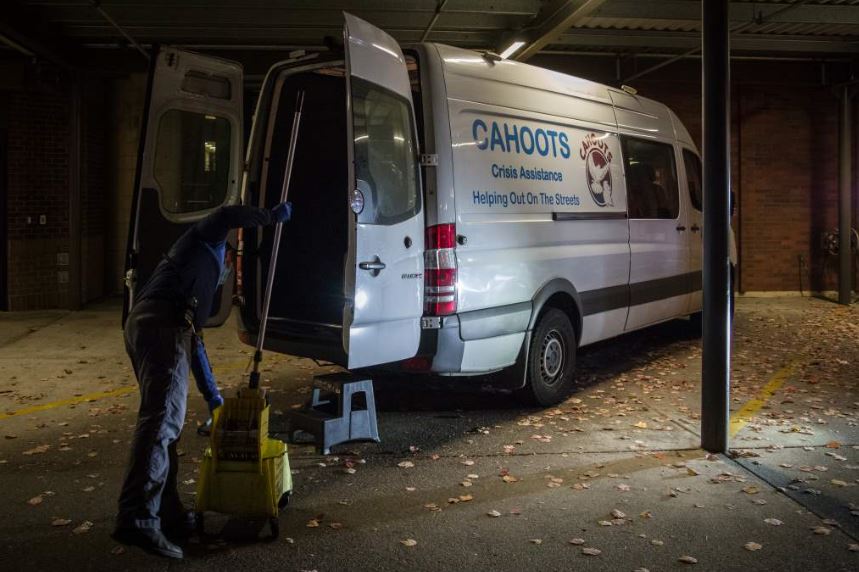
Senators Propose Funding to Improve Public Safety with Mobile Crisis Response Teams
Press Release from Jeff Merkley, US Senator for Oregon
After Down Payment on the Policy Included in Reconciliation Relief Legislation, CAHOOTS Act Builds on Proven Models to Help Americans with Mental Illness and Enhances Medicaid Funding to States
Washington, D.C. – Senate Finance Committee Chair Ron Wyden, D-Ore., Senator Catherine Cortez Masto, D-Nev., and six senators today proposed a bill to help states adopt mobile crisis response teams that can be dispatched when a person is experiencing a mental health or substance use disorder (SUD) crisis instead of immediately involving law enforcement. The funding is provided through an enhanced federal match rate for state Medicaid programs.
“I’m proud there is a down payment on CAHOOTS in the emergency relief package moving through Congress now,” Wyden said. “Every day there are stories across the country of Americans in mental distress getting killed or mistreated because they did not receive the emergency mental health services they needed. White Bird Clinic in Eugene, Oregon has been a pioneer for years in this area, and it’s high time the CAHOOTS model is made available to states and local governments across the country. I am eager to get the down payment signed into law and continue working to get further investments in mobile crisis services made under the bill across the finish line.”
“Individuals experiencing a behavioral health crisis deserve to be treated with compassion and care by health care and social workers,”Cortez Masto said. “These professionals are extensively trained in deescalating situations and addressing mental health crises, and this legislation would help more states across the country fund mobile crisis teams. I’m hopeful that these investments in community-based crisis intervention services will be included in the final version of the current coronavirus relief package, and I’ll continue to advocate for effective, trauma-informed care for those in need.”
Earlier this month, the House Energy and Commerce Committee included a provision in its budget reconciliation language for COIVD-19 relief that makes an investment in these services by funding state Medicaid programs at an enhanced 85 percent federal match if they choose to provide qualifying community-based crisis intervention services and funding state planning grants to apply for the option. The pandemic has taken a serious toll on the mental health and wellbeing of Americans with studies showing a four-fold increase in the rates of anxiety and depressive disorders since the beginning of the pandemic.
The CAHOOTS program pioneered by Oregon’s @WhiteBirdClinic has shown us a safe and effective alternative to using law enforcement in mental health crises. I’m proposing legislation to expand this model nationwide and modernize our country’s outdated approach to crisis treatment.
— Ron Wyden (@RonWyden) February 18, 2021
The bill, the Crisis Assistance Helping Out On The Streets (CAHOOTS) Act, grants states further enhanced federal Medicaid funding for three years to provide community-based mobile crisis services to individuals experiencing a mental health or SUD crisis. It also provides $25 million for planning grants to states and evaluations to help establish or build out mobile crisis programs and evaluate them.
Senators Jeff Merkley, D-Ore., Bob Casey, D-Pa., Tina Smith, D-Minn., Dianne Feinstein, D-Calif., Sheldon Whitehouse, D-R.I., and Bernie Sanders, D-Vt., are co-sponsors of the CAHOOTS Act.
View this post on Instagram
A one-page summary of the bill can be found here. Legislative text can be found here.



